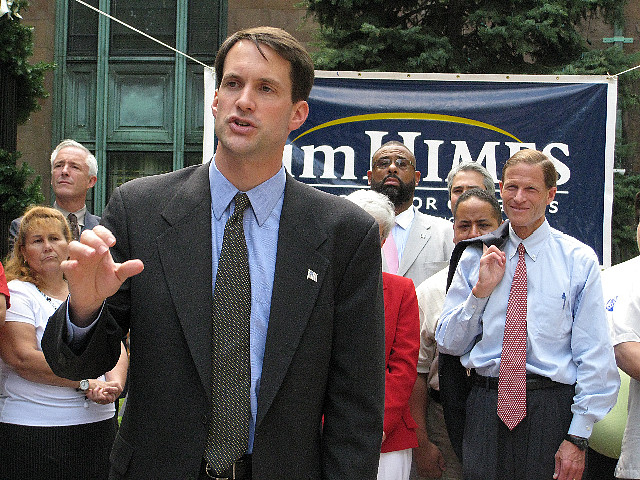JOBS Act schism
With the JOBS Act about to become law, including provisions permitting crowd funding and general solicitation, Connecticut officials were split on whether it will be good or bad for the state”™s businesses and investors.
The bill passed the U.S. Senate March 27 by a vote of 73 – 26. After final House approval, needed because the Senate amended the House version, the bill has now been sent to President Obama, who is expected to sign it.
The JOBS Act is important to Fairfield County because it will help small businesses and venture capitalists raise money. It will also allow hedge funds and private equity firms to advertise for the first time. But opponents argue it could be nothing short of a disaster for investors.
“I believe the JOBS Act is fatally flawed in failing to protect investors against fraud and deception that will be enabled and indeed encouraged by key loopholes,” U.S. Sen. Richard Blumenthal stated in an email.
Blumenthal was one of 26 Democrats to vote against the law in the Senate. Sen. Joseph Lieberman, an independent, voted for it. Twenty-five Democrats joined with Republicans in supporting it.
U.S. Rep. Jim Himes, floor manager for the bill in the House, immediately put out a press release applauding passage.
“This bipartisan effort will improve the business climate and, in turn, create jobs,” Himes said. “This new law will put more decisions in the hands of business owners so they can continue to grow while easing into the responsibilities associated with increasing the number of people who have invested in the company.”
Connecticut Banking Commissioner Howard Pitkin, however, was not as supportive.
Asked in an interview whether he was “basically ok with the bill,” Pitkin said, “We are not entirely satisfied with the final version. Congress is trying to weigh risks to the consumer with job creation. We will continue to do all we can about investor protection.”
Barbara Roper, director of investor protection at the Consumer Federation of America, used stronger language.
“The White House, which pushed for passage of a bipartisan bill regardless of its attack on investor protections, and Senate leadership … bear a heavy burden of responsibility for the damage this bill will cause to vulnerable investors,” Roper stated.
Asked whether he approved of the crowd-funding provision, which many state regulators oppose because they say it will weaken state oversight, Pitkin noted that “the state still has jurisdiction if fraud occurs.”
Supporters of the Act include entrepreneurs, Republicans and some Democrats. Opponents include many regulators, including Obama appointee Mary Schapiro, head of the Securities and Exchange Commission.
“Too often, investors are the target of fraudulent schemes disguised as investment opportunities,” she stated in a March 14 letter to the Senate Banking Committee on the bill. “If the balance is tipped to the point where investors are not confident that there are appropriate protections, investors will lose confidence in our markets.”
Schapiro was referring to the bill”™s controversial provision on crowd funding, which permits small businesses to raise money from investors over the Internet, without many of the usual protections.
Another section will eliminate the “no general solicitation” requirement of Regulation D for private offerings under the Securities Act of 1933, so long as buyers are accredited investors. This will allow Fairfield County”™s many hedge funds and private equity firms to use marketing and advertising to attract investors, making it much easier to raise capital.
The North American Securities Administrators”™ Association (NASAA), a Washington-based group for state securities regulators, is adamantly opposed to the crowd funding part of the act.
Bob Webster, a NASAA spokesman, noted that under the provision, states are not permitted to take any actions until after a fraudulent offering is made and the money is gone.
“Investors need a fence at the top of the cliff, not an ambulance at the bottom,” he said.
A problem for opponents, according to Webster, is that the JOBS Act ”“ an acronym for “Jump Start Our Business Startups” ”“ was packaged as an engine for job creation, which he says it is not.
“It is just an acronym,” Webster said. “But very few people want to be perceived as anti-business.”
